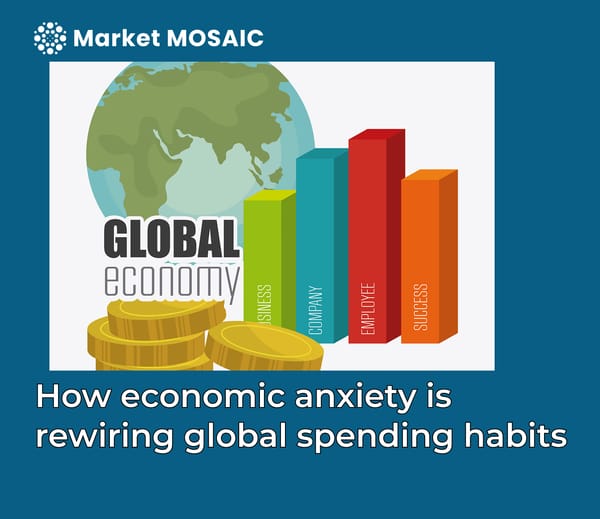Thriving in Inflation: Value-Driven Strategies for FMCG Success in a Changing Market

The fast-moving consumer goods (FMCG) industry finds itself at a crossroads amidst the current economic climate. Inflation, a persistent and global phenomenon, is wreaking havoc on consumers and producers, presenting significant challenges and demanding innovative solutions. Let's delve into the multifaceted impact of inflation on the FMCG industry, outlining its effects on both consumers and producers and explores strategies that companies can adopt to navigate these turbulent waters.
Consumer Woes: The Impact of Inflation on Buying Habits
With rising costs of raw materials, transportation, and labor, FMCG companies are forced to increase product prices. This directly impacts consumers, particularly those with limited budgets, who experience decreased purchasing power and a shift in spending patterns.
- Price Sensitivity: Consumers become hyper-aware of price changes and are more likely to switch to cheaper alternatives, private labels, or smaller pack sizes.
- Value-Driven Choices: Discretionary spending on non-essential goods takes a backseat as consumers prioritize value-for-money products and actively seek promotions and discounts.
- Lower-End Consumers Bear the Brunt: Those with lower incomes are disproportionately affected, often forced to prioritize essential items over FMCG products, leading to lower demand and increased competition in this segment.
Producer Pains: The Inflationary Squeeze on Profit Margins
Higher input costs not only impact consumers but also squeeze profit margins for FMCG companies. This compels them to find ways to reduce costs, optimize processes, and maintain operational efficiency.
- Supply Chain Disruptions: Inflation can exacerbate existing supply chain disruptions, leading to shortages of raw materials and finished products, further impacting production, costs, and availability.
- Innovation Imperative: Companies are driven to invest in innovation, developing more cost-effective products and processes to ensure long-term sustainability and competitive edge.
- Premium Positioning: While premium brands may be less affected by inflation due to their established value perception, they still face pressure to maintain their competitive advantage and attract budget-conscious consumers.
Charting a Course for Success: Strategies for FMCG Companies in an Inflationary Environment
Navigating the inflationary landscape requires a proactive approach. Here are some strategies FMCG companies can adopt to mitigate challenges and thrive:
- Price Optimization: A data-driven approach to price adjustments is crucial to balance cost increases with maintaining demand and market share.
- Cost Reduction Initiatives: Companies can implement cost-saving measures throughout the supply chain, from sourcing to production and logistics.
- Product Innovation: Developing new product offerings that are more affordable or offer better value for money can attract price-sensitive consumers.
- Marketing and Promotion Strategies: Effective marketing campaigns that highlight value propositions and promote deals can attract and retain customers.
- Digital Transformation: Leveraging digital technologies can improve operational efficiency, optimize supply chains, and enhance customer engagement.
- Focus on Sustainability: Consumers are increasingly conscious of environmental and social issues. Companies that prioritize sustainability can gain a competitive edge and build brand loyalty.
Staying Ahead of the Curve: The Importance of Adaptability
In an ever-evolving economic landscape, adaptability is paramount for success. By closely monitoring inflationary trends, understanding consumer behavior, and implementing proactive strategies, FMCG companies can navigate the challenges and emerge stronger.
- Develop a Culture of Innovation: Foster a culture that encourages creativity, experimentation, and risk-taking. Create internal programs and initiatives that support innovation and encourage employees to think outside the box.
- Embrace Data-Driven Decision Making: Leverage data analytics to gain insights into consumer behavior, market trends, and competitor activity. This data can inform strategic decision-making and ensure that companies are adapting to real-time changes.
- Invest in Agility and Flexibility: Implement agile methodologies and organizational structures that allow for rapid decision-making and quick course correction. This ensures the company can adapt to unexpected market shifts without losing momentum.
- Build Strong Partnerships: Collaborate with other companies, startups, and technology providers to share knowledge, resources, and expertise. This can accelerate innovation, drive efficiency, and provide access to new markets and technologies.
- Prioritize Customer Centricity: Cultivate a customer-centric approach by actively listening to customer needs and preferences. This allows companies to tailor their products, services, and marketing strategies to meet evolving consumer expectations.
- Focus on Sustainability: Implement sustainable practices throughout the value chain, from sourcing to production and distribution. This includes reducing waste, optimizing energy consumption, and using eco-friendly packaging.
Conclusion
The fluctuating economic climate presents presents significant challenges, impacting consumers and producers alike. However, amidst these challenges lie opportunities for FMCG companies that are willing to adapt and innovate. By embracing change, fostering a culture of creativity, and adopting data-driven decision-making, FMCG companies can navigate the turbulent waters of inflation and emerge stronger.





